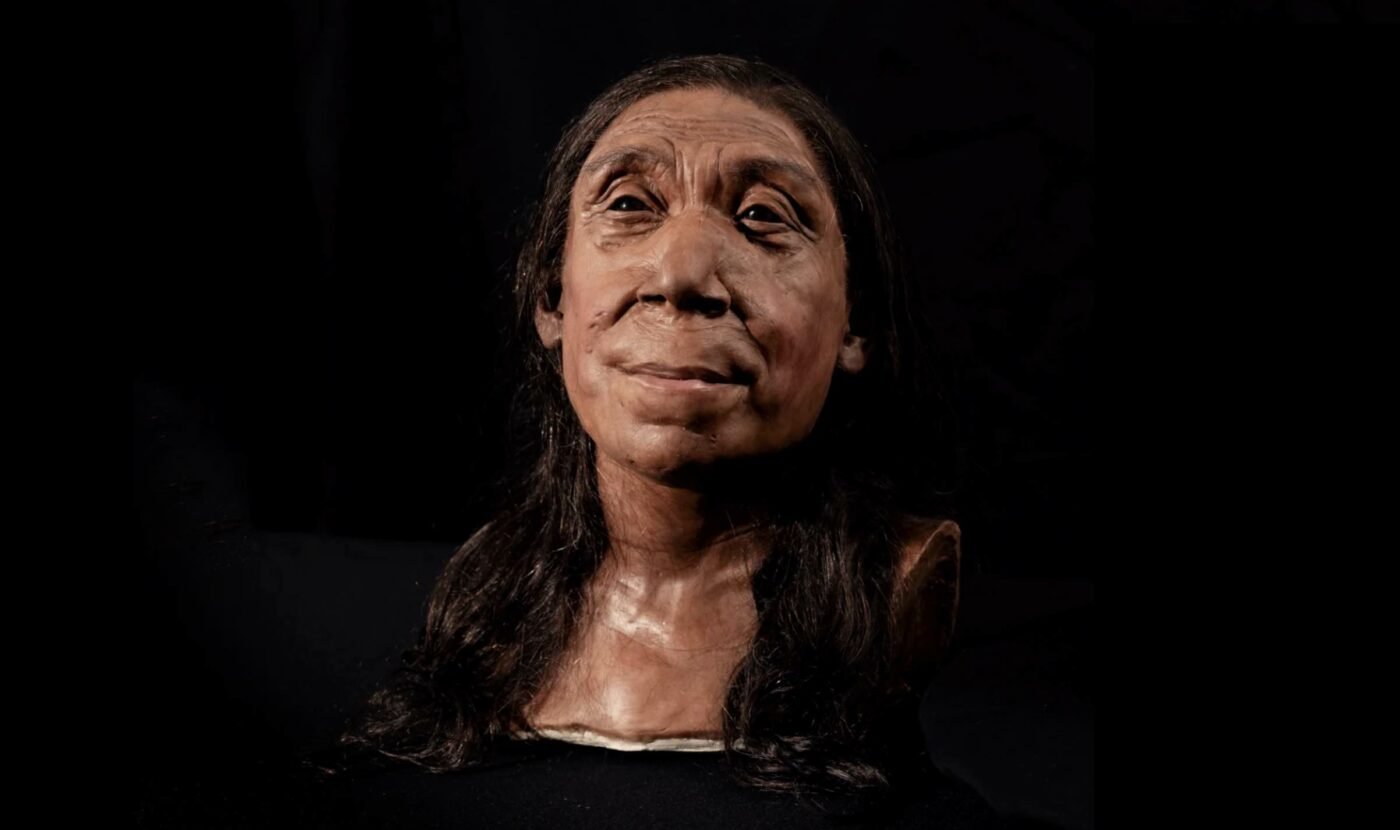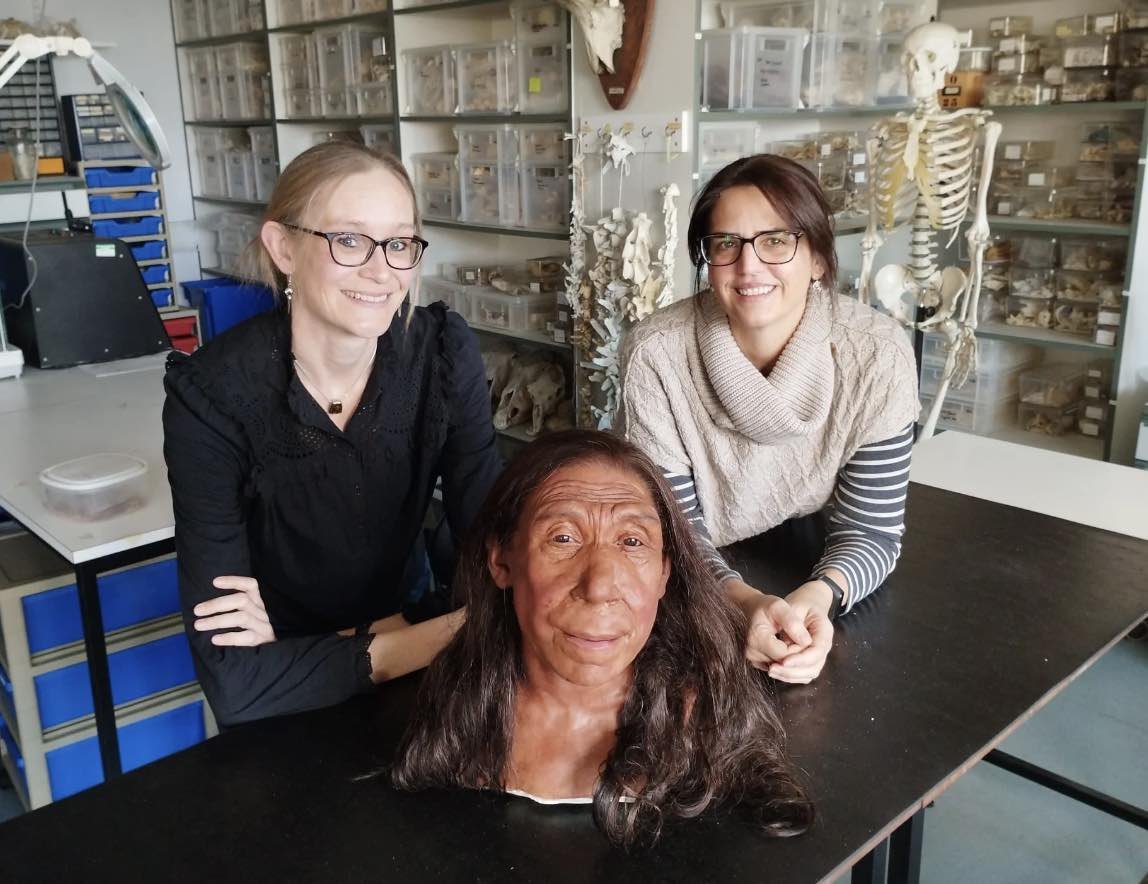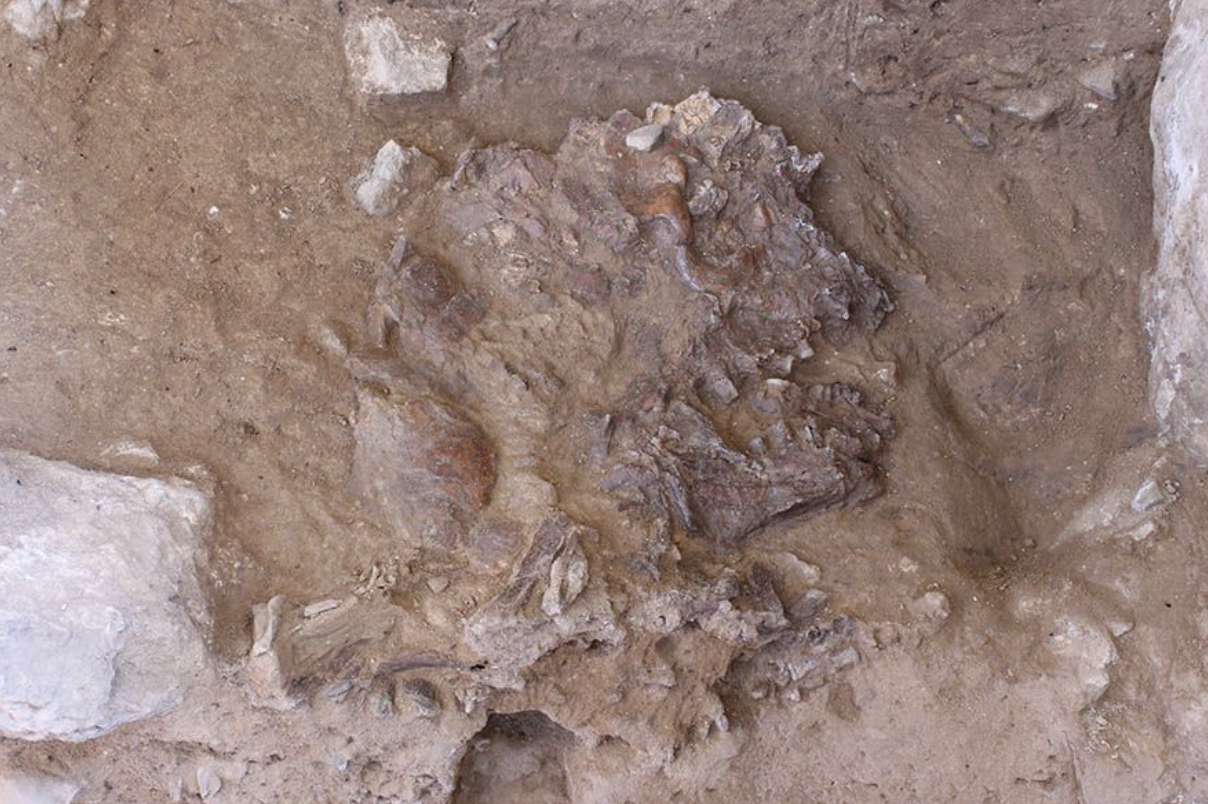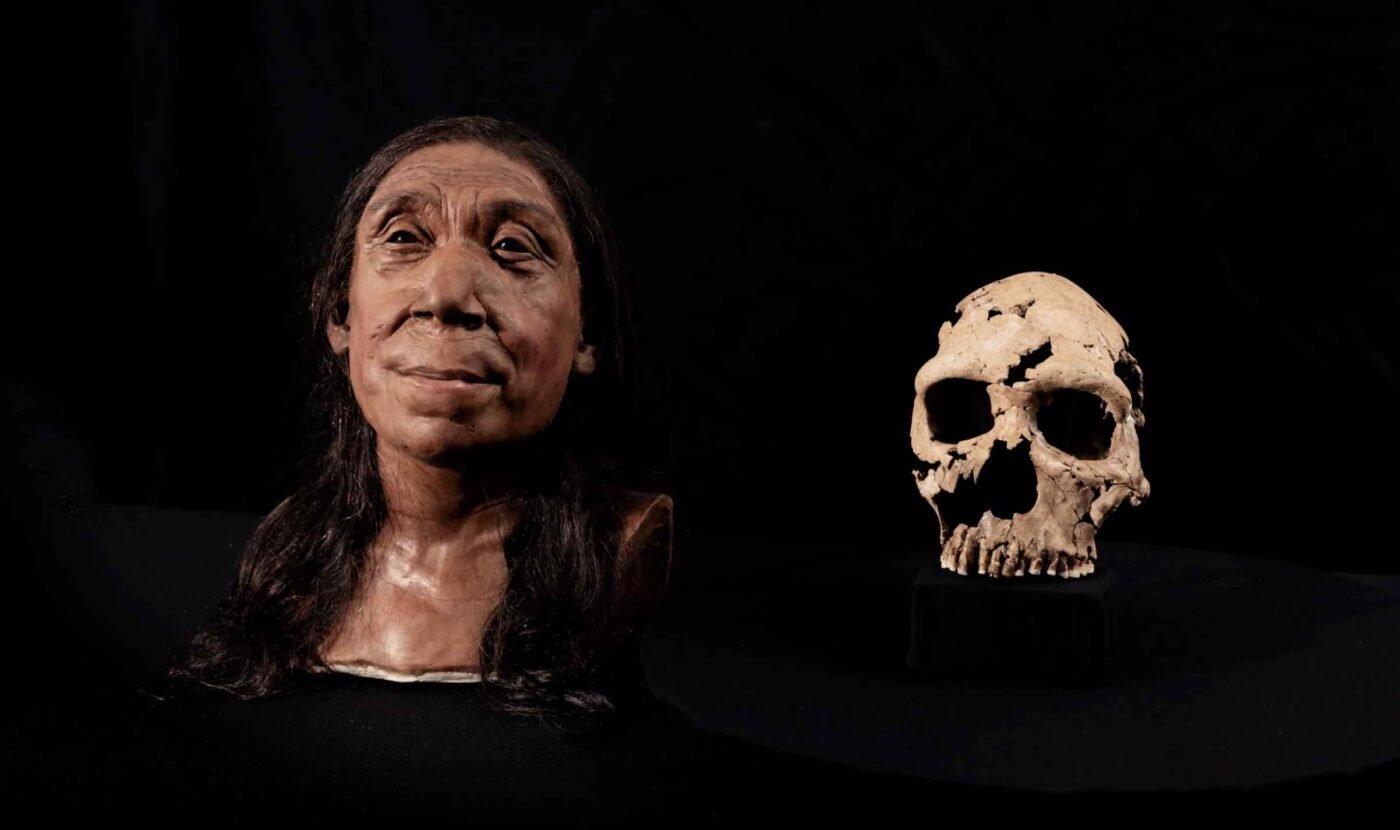
Posted on 05/03/2024 11:17:40 AM PDT by Red Badger

In 2018, a female Neanderthal was discovered in the Shanidar Cave in Iraqi Kurdistan. Now, archaeologists from The University of Cambridge have unveiled the reconstructed face of the 75,000-year-old woman, based on the assembly of hundreds of individual bone fragments recovered during excavations.
“Neanderthals have had a bad press ever since the first ones were found over 150 years ago,” said Professor Graeme Barker from Cambridge’s McDonald Institute for Archaeological Research, who led the excavation at the cave where the woman’s remains were discovered. Neanderthals are believed to have become extinct around 40,000 years ago, and discoveries of their remains are relatively rare.
Named Shanidar Z after the location where her flattened skull was found, the woman’s remains were discovered in an area where the species had repeatedly returned to bury their dead. Believed to have been in her mid-40s based on data obtained from sequencing of tooth enamel proteins that also helped determine her sex, the Neanderthal woman was found in a sleeping position under a huge vertical stone marker.
 The Shanidar Z skull (Image Credit: University of Cambridge).
The Shanidar Z skull (Image Credit: University of Cambridge).
Standing at just five feet tall and possessing some of the smallest adult arm bones found in the Neanderthal fossil record, her physical characteristics also suggest she was female.
“The skulls of Neanderthals and humans look very different,” says Dr. Emma Pomeroy, a palaeo-anthropologist from Cambridge’s Department of Archaeology. Neanderthal skulls have huge brow ridges and lack chins, with a projecting midface that results in more prominent noses. However, the reconstructed face of the 75,000-year-old Neanderthal woman suggests those differences were not so apparent in life.
“It’s perhaps easier to see how interbreeding occurred between our species,” Pomeroy said of the woman’s likeness to modern humans, “adding that almost everyone alive today still has Neanderthal DNA.”

Dr Emma Pomeroy (left) pictured with Dr Lucía López-Polín alongside the newly reconstructed face of a 75,000 year old Neanderthal woman (Image credit: Emma Pomeroy).
Featured in a new Netflix documentary, “The ‘Secrets of the Neanderthals”, produced by BBC Studios Science, the program follows a team of archeologists from the universities of Cambridge and Liverpool John Moores as they return to Shanidar Cave to continue their excavations and study remnants of our archaic ancestors.
Researchers believe that Shanidar Z could be the upper portion of an individual whose remains were initially found during excavations in 1960. The Neanderthal woman’s death may have resulted from her head being crushed by falling rocks, and soon afterward, the brain decomposed, allowing her skull to fill with soil and become flattened to around two centimeters in thickness, the state in which archeologists discovered the remains in 2018.

The skull of Shanidar Z, flattened by thousands of years of sediment and rock fall, in situ in Shanidar Cave, Iraqi Kurdistan (Credit: Graeme Barker).
The Cambridge team decided the best plan would be to unearth the skeleton, after which they used a glue-like strengthening agent that would help to solidify the bones around the sediment. Shanidar Z was carefully extracted in dozens of small foil-wrapped blocks from deep within the cave, buried under seven and a half meters of soil and rock.
Once the remains were back at Cambridge, lab researchers produced micro-CT scans of each block before gradually diluting the glue and using the scans to guide the extraction of bone fragments.
“Each skull fragment is gently cleaned while glue and consolidant are re-added to stabilise the bone, which can be very soft, similar in consistency to a biscuit dunked in tea,” Pomeroy said in a statement. “It’s like a high stakes 3D jigsaw puzzle. A single block can take over a fortnight to process.”
Crucial work performed by lead conservator Dr. Lucía López-Polín saw the painstaking reassembly of more than 200 skull fragments by hand, which gradually returned portions of the skull to its original shape and form.
 Kennis Brothers Reconstruction and Shanidar Z skull (Image Credit: University of Cambridge).
Kennis Brothers Reconstruction and Shanidar Z skull (Image Credit: University of Cambridge).
The reassembled skull was then surfaced scanned, and a reproduction produced using 3D printing technologies, which was used as the basis for the final reconstruction produced by paleoartists.
“It’s extremely exciting and a massive privilege actually to be able to work with the remains of any individual but especially one as special as her,” Pomeroy told BBC News.
Although remains of at least ten different Neanderthals have been discovered in the cave, Shanidar Z is the fifth found among a group of bodies buried together in close proximity and likely at around the same time.
“It’s always difficult piecing together a highly fragmented skull,” says Michael Masters Ph.D., a professor of biological anthropology at Montana Technological University in Butte, Montana.
“The debate surrounding Sahelanthropus tchadensis as a member of the hominin clade is a good example of what’s at stake in this tenuous pursuit,” said Masters, who was not directly involved in the recent reconstruction effort, in an email to The Debrief.
“However, with new technologies and methodologies, such as those used by the Cambridge lab to reconstruct the 200 highly fragmented pieces crushed by rockfall and millennia of sedimentation, it is possible to get an accurate depiction of who this Neanderthal woman from 75,000 years ago was and what she looked like, which further adds to our understanding of this fascinating human subspecies.”
Chrissy Newton is a PR professional and founder of VOCAB Communications. She hosts the Rebelliously Curious podcast, which can be found on The Debrief’s YouTube Channel. Follow her on X: @ChrissyNewton and at chrissynewton.com.
PinGGG!........................
I tend to lean towards the idea that Neanderthals just may have been a type of ape. It’s eye sockets and skull placement on the spinal column makes it more likely that it was an ape than human.
The lack of intermediary forms suggests no overlaps with humans.
They were subsumed by Homo Sapiens.............
What a lot of hokum.
There has yet yo be verifiable and sound scientific evidence of man existing beyond around 6000 years ago.
People believe what they want to believe often against evidence and proof or the lack thereof.
Hubba, hubba!!!
Keep Clinton away from her.
Is this recreation of faces in soft tissue simulation more than just hopes and guesses? I wonder what the oldest preserved human is; i.e. Bog People from peat bogs, preserved in ice in Siberia, etc? Where we could actually at least sort of see a face?
It’s based on forensic measurements of skeletal remains.
It’s been used by police all over the world for decades.............
Neanderthal DNA is roughly halfway between ours and that of a chimpanzee. The Neanderthal was a very advanced bipedal ape with huge dark-world eyes and a thick fur coat.
The images in the article you cite here are not even close to what a Neanderthal looked like.
This is what Neanderthals looked like
There are two pieces of good news wrt Neanderthals: they are extinct, and we are not related to them, other than by similar design. We are not hominids, we are not descended from hominids, and we have never interbred with hominids. All such claims are total BS.
That’s the assumption, if Neanderthals were human.
But interbreeding between two species, even supposedly close ones, results in a creature that is sterile.
Either it’s fully human or we didn’t breed with them at all.
Was she more scared of men than bears?
Nope, seems totally wrong. She would have never have been that old as depicted.
And how do they know this person didn't identify as a male?
Or, as a Homo Sapien?
Very judgmental of those researchers.
Looks like her Botox treatment failed.
Michelle?
Didn’t modern humans, our homo sapiens ancestors, experience interbreeding with Neanderthals? I have heard that some humans today have certain Neanderthal characteristics .
No chin? Sounds like Frank Burns
Bears aren’t scared of men.................
Yes, they are in the Neanderthal Football League.................
I would expect someone to have a lot more wrinkles at age 75,000. Those reconstructive surgeons did an amazing job in erasing those signs of aging!
Or maybe the headline was just really badly written and I got the wrong impression.
This is an artist’s impression of what the woman might have looked like. I wonder why they made her skin so dark. The neanderthals lived in Europe—wouldn’t that mean their skin color would be lighter? The reason modern Europeans lost their pigmentation was so that they could get adequate vitamin D through sun exposure. Melanin absorbs UV light, so lighter people survived better than darker people in the north.
Disclaimer: Opinions posted on Free Republic are those of the individual posters and do not necessarily represent the opinion of Free Republic or its management. All materials posted herein are protected by copyright law and the exemption for fair use of copyrighted works.